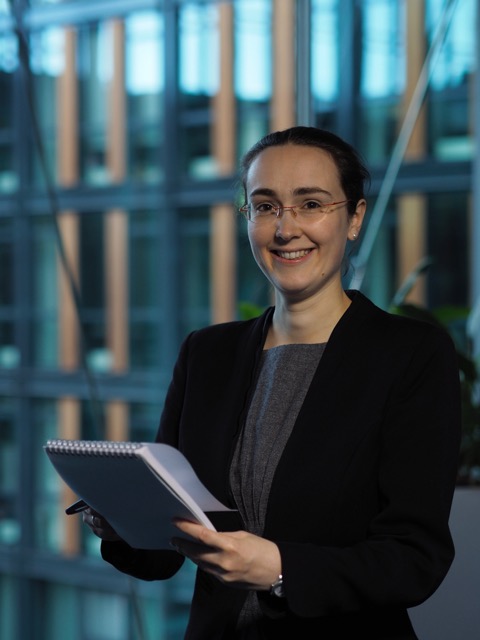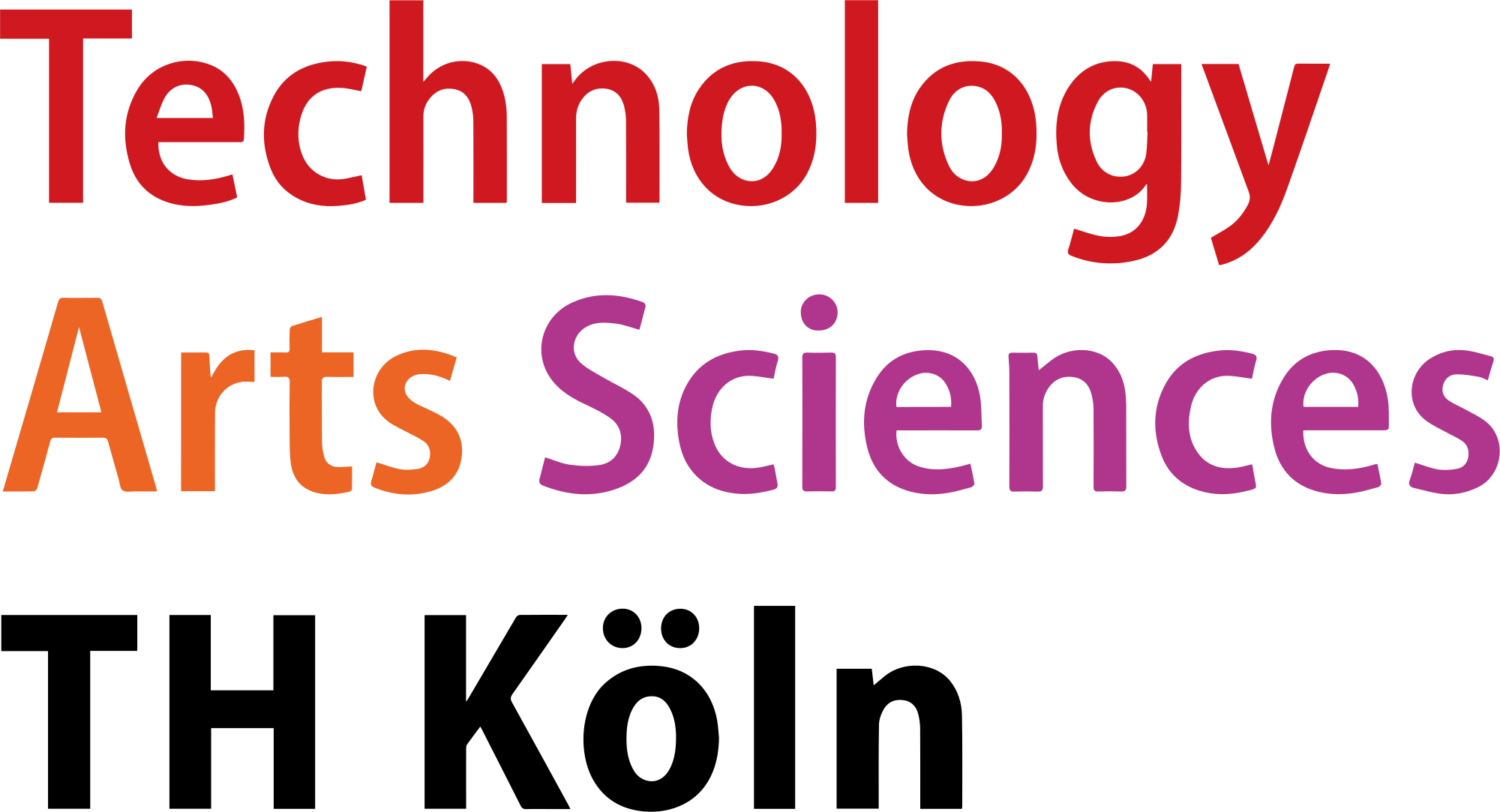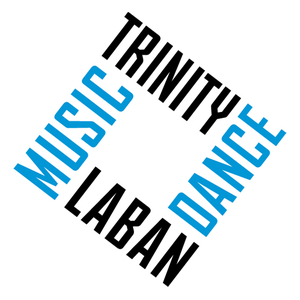Teaching
Applied Linguistics, Quantitative Methods, English Language Teaching, Digital Literacy, Academic English, English and French as Foreign Languages
Interpreting
Simultaneous, Consecutive, Liaison, Whispered Interpreting and Interpreter Training
About me
I was born in Rennes, France, and spent the first half of my childhood in Brittany and the second in South West England. Raised in a bilingual and bicultural Franco-British environment, I soon developed a keen interest in cultures and languages. I have been living in Cologne in Germany since 2011 and am now fluent in German.
I graduated from the Conference Interpreting M.A. programme at the University of Applied Sciences in Cologne with a first and immediately began my translation and interpreting career at the German national railway company, Deutsche Bahn AG. There, I gathered valuable translation and interpreting experience in a broad range of fields (e.g., railway engineering, logistics, HR, IT, works councils, etc.), before becoming a freelance conference interpreter in 2017. My working languages are English, French and German. I also regularly teach sight translation, liaison interpreting and conference interpreting (German – English) at the University of Applied Sciences in Cologne on a freelance basis.
I have always had a passion for both learning and teaching foreign languages and now have more than 10 years’ experience as an English and French teacher in adult education. I began my research academic career as a part-time research assistant and lecturer in English Education and Applied Linguistics at Osnabrück University (Germany) in 2016. My PhD project was at the crossroads between applied linguistics and English language teaching research: I conducted several corpus-based multivariate analyses of the language of English as a Foreign Language (EFL) textbooks used in secondary schools in France, Germany and Spain. I defended my PhD thesis in July 2022 (summa cum laude). In parallel to my doctoral studies, I also completed an M.Sc. in Cognitive Science at the Institute of Cognitive Science in Osnabrück, specialising in linguistics and cognitive psychology with a focus on instructed second language acquisition.
From October 2022 to February 2023, I was a post-doctoral research fellow at the Centre for English Corpus Linguistics (CECL) at the Université Catholique de Louvain (Belgium). I am now a lecturer and post-doctoral researcher at the Department of Romance Languages at the University of Cologne (Germany) where I specialise in the application, advancement and teaching of quantitative corpus-linguistics methods. I also co-lead project B10 on gender as a prominence-lending feature at the Collaborative Research Centre (CRC 1252) on “Prominence in language”.
I have taught English Language Teaching seminars to future English teachers (B.A. and M.Ed.) in Osnabrück, Hannover, Dortmund, and Louvain-la-Neuve on topics as diverse as designing and evaluating teaching materials, vocabulary acquisition, teaching speaking skills and phraseology, and on the applications of corpus linguistics in language teaching and learning. In Cologne, I now teach corpus linguistics to both linguistics students and future teachers of Romance languages, critical language data literacy, data analysis and statistics in R, and Open Science practices in linguistics and language education. I am the founder and co-organiser of ReproducibiliTea in the HumaniTeas and regularly give workshops on Open Science, corpus linguistics, and data analysis in R to pre- and post-doctoral colleagues.
In addition to textbook language, my research interests include foreign language pedagogy, corpus-linguistic methods, learner language, media and (language) data literacy, sociolinguistics, and the socio-cognitive processes involved in second language acquisition.
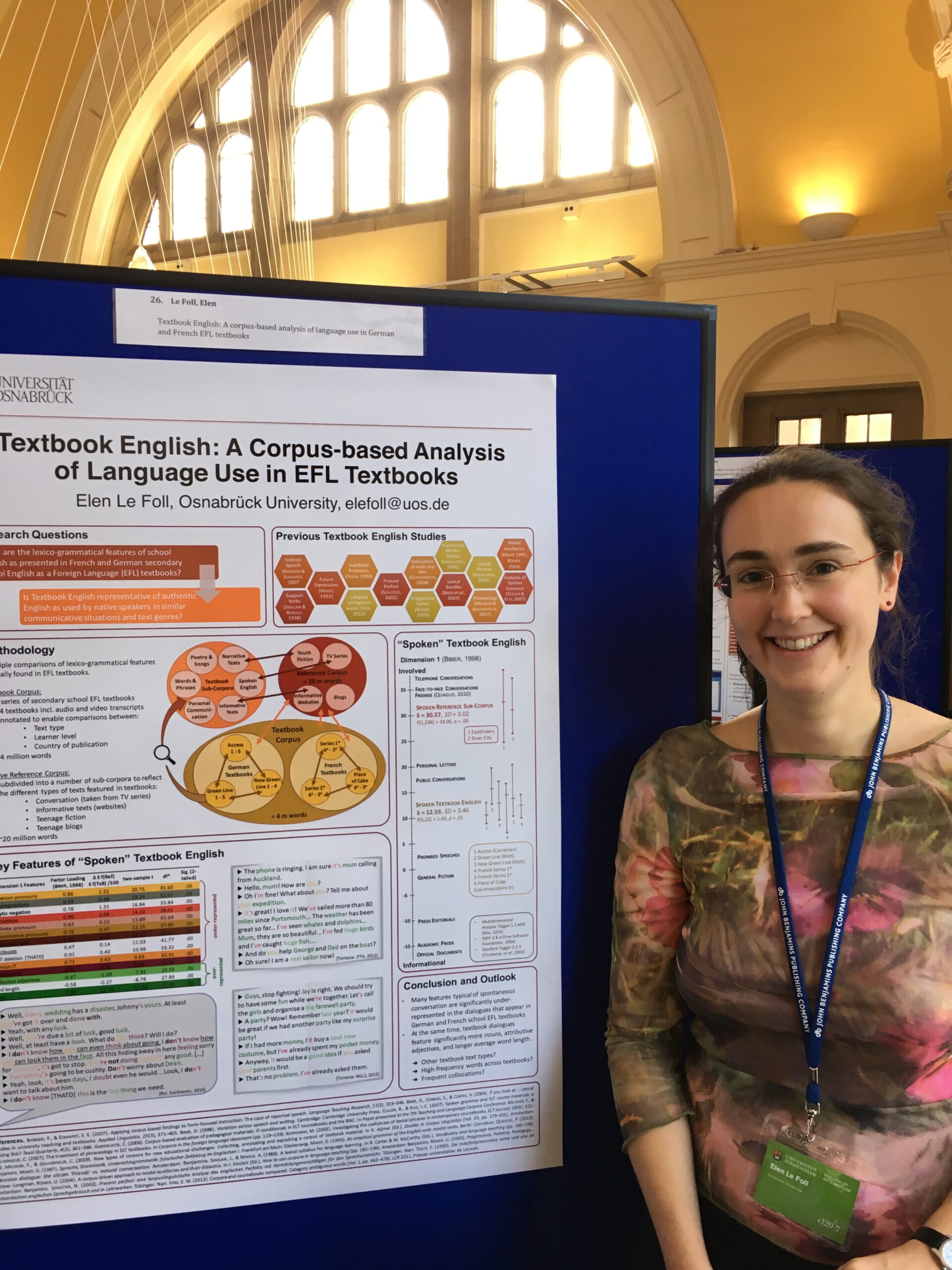
Education
2016 – 2022
Ph.D. in Applied Linguistics / English Language Teaching
Osnabrück University
Institute of English and American Studies
Thesis: Textbook English: A Corpus-Based Analysis of the Language of EFL textbooks used in Secondary Schools in France, Germany and Spain
Grade: Summa cum laude
2017 – 2021
M.Sc. Cognitive Science
Osnabrück University
Majors: (Computational) Linguistics & Cognitive Psychology
M.Sc. thesis: A New Tagger for the Multi-Dimensional Analysis of Register Variation in English
2011 – 2016
M.A. Conference Interpreting
University of Applied Science in Cologne
M.A. thesis: Collocational competence in English as a B language
Sep. – Dec. 2014
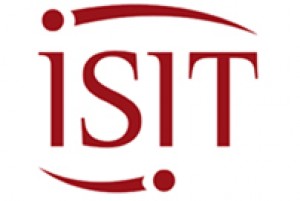
Conference Interpreting
Erasmus semester at ISIT, Paris
Freelance Conference Interpreter
- Based in Cologne, Germany.
- Regularly working in Bonn, the Ruhr area, Mainz, Frankfurt, Berlin, Hamburg, Brussels, Strasbourg …
- Member of the German Association of Conference Interpreters (VKD)
- Working Languages: English (A), French (A), German (B)
Language Combinations
 English ↔ French
English ↔ French 
 French ↔ German
French ↔ German 
 German ↔ English
German ↔ English 
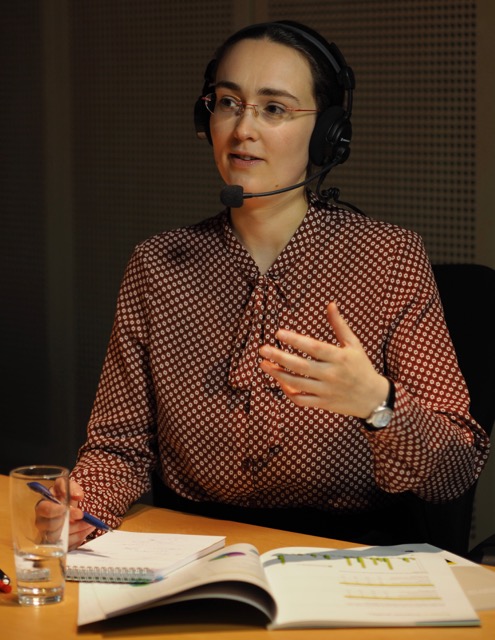
Interpreting Experience
Automative and railway engineering, logistics, IT
Culture, arts, education
Environment, climate change, renewable energies
International development, aid, human rights
Board meetings, AGMs, press conferences, works councils
International law, trade, negotiations
Interpreting Modes

UN Climate Change Conference 2017, Bonn
Consecutive and Liaison Interpreting
Consecutive interpreting means that the interpreter first listens to an extended section of a speech while taking notes using a special technique. The interpreter renders the speech in the target language immediately afterwards using her notes to ensure that no detail or nuance is omitted. Since the interpretation is provided consecutively rather than in real time, event organisers should be aware that this mode requires around twice as much time as simultaneous interpreting.
Typical settings: dinner speeches, welcome addresses, bilateral negotiations, guided tours, etc.
When consecutive interpreting involves the translation of shorter sections of what has been said after the speaker pauses, it is usually referred to as liaison or bilateral interpreting.
Typical settings: round table negotiations, technical discussions, lunch meetings, etc.
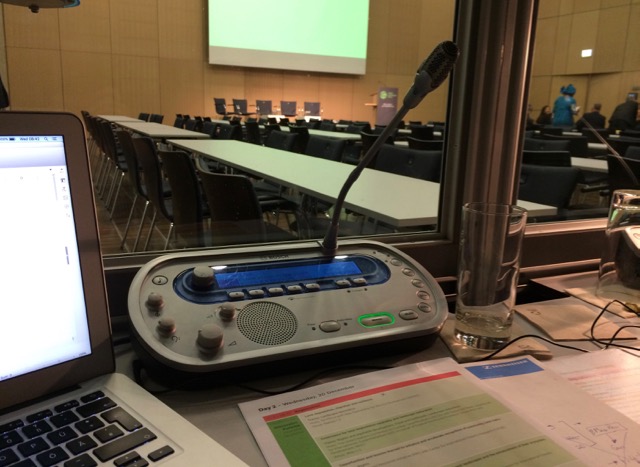
Global Landscape Forum 2017, Bonn
Simultaneous Interpreting
Simultaneous interpreting involves the translation of the spoken word virtually in real time. This requires exceptional concentration on the part of the interpreter. As a result, interpreters work in a team of two (or sometimes three) simultaneous interpreters taking turns every 20 to 30 minutes. Interpreters work side by side in a soundproof interpreting booth which contains an interpreting console, with a microphone and headphones, per interpreter.
If your venue does not have built-in interpreting booths, there are usually many good local portable booth providers to choose from. If you have any questions on interpreting modes and the necessary equipment, please do not hesitate to get in touch.
Typical settings: conferences, presentations, multilingual meetings, negotiations, shows, gala events, etc.
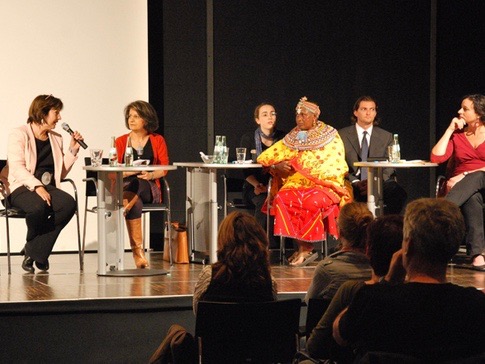
Women's Rights Networking Event 2015, Cologne
Whispered Interpreting
Whispering (also known as chuchotage) is a special form of simultaneous interpreting which is only suitable in certain situations. The interpreters stand or sit beside (or just behind) the person(s) requiring interpretation and whisper their interpreted version of the speech to them in real time.
For an assignment lasting longer than 30 minutes, this mode of interpreting requires a team of at least two conference interpreters. To keep noise levels down for the other participants, whispering is only ever provided for one or, at most, two listeners. This technique is not suitable for events requiring interpreting into more than one language.
Contact
Do get in touch!
Dr. Elen Le Foll
she/her
Address
51105 Cologne, Germany
Phone
